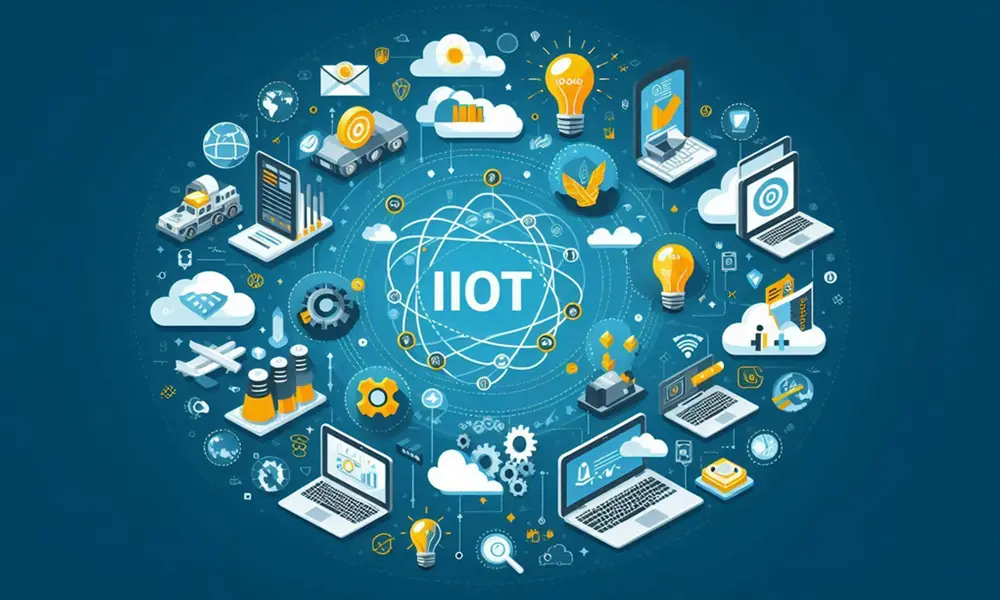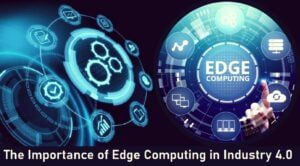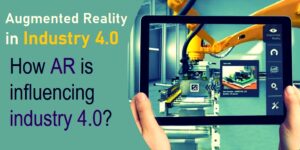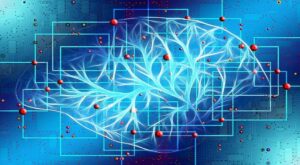The Internet of Things (IoT) is one of the most important pillars of Industry 4.0. The Industrial IoT is the fastest-growing part of the digital transformation. During crises like the COVID-19 pandemic, IIoT enabled organizations to react faster and more efficiently to market changes. IIoT helps companies acquire and analyze data, turning it into actionable insights. This facilitates faster decision-making and problem-solving. Let’s explore the role of Industrial Internet of Things in digital transformation and understand how IIoT technology can transform our digital world.

Industrial Internet of Things (IIoT): The Next Step to Digital Transformation
The Internet of Things (IoT) is one of the most important technology trends for the industrial automation today. It is one of the most important pillars of Industry 4.0.
It is estimated that by 2025, the number of devices connected to the network through the IoT technology will reach more than 75 billion, which represents a great step towards making the world a fully connected place.
However, the interconnection of devices and appliances through a network without requiring human interactions is not limited to everyday things such as telephones, household appliances or cars. In fact, within the IoT a new trend has emerged that is transforming companies: the Industrial Internet of Things (IIoT).
The Industrial Internet of Things is the part of digital transformation (DX). In this article, we will explain what the Industrial Internet of Things is and how the IIoT can facilitate massive digital transformation.
What is Industrial Internet of Things (IIoT)?
Industrial Internet of Things is a subcategory of the Internet of Things (IoT) used in Industry 4.0 to enhance manufacturing and industrial processes. This technology also includes consumer-facing applications such as wearable devices, smart home technology, and driverless cars. The distinctive feature of both concepts is the infrastructure, machines and sensor-embedded devices that transmit data over the Internet and are managed by software.
The IIoT or Industrial Internet of Things consists of connecting any type of industrial machinery to the network in order to process the large amount of data that is constantly produced. This technology is perfect for any company that needs to streamline processes and innovate in operational tasks by obtaining data and information of great value.
The uses and benefits of IIoT technology are diverse: from monitoring machines that can now self-monitor and predict potential problems; going through the supply chain, which can be self-managed and reduce waste; until obtaining valuable insights that help make better business decisions immediately.
In order to apply this model, its constituent elements must be connected through networks. These can be established with various elements such as: machines, factories, warehouses, intelligent supply chains, etc. The main thing is that they integrate processing, storage and communication functionalities in order to control and optimize processes.
The scope of having industrial machines and devices connected in a network and communicating with each other, are incalculable. However, to have successful processes, companies need to extract the correct data and do the most appropriate analysis for each business model and thus take advantage of the IIoT architecture.

What is Digital Transformation?
The digital transformation is the integration of digital technology in all areas of a business, to meet changing business and market requirements.
It is also a cultural shift that requires an organization to change the way it operates and delivers value to its customers and constantly challenge the status quo at work, and highlight effective approaches for introducing new innovative ideas.
Digital transformation is necessary for any business, organization, or institution seeking to survive in the future.
Digital transformation helps companies keep pace with emerging customer demands, and better compete in an economic environment that is constantly changing as technology evolves.
The Internet of Things (IoT) allows us to have smart homes, smart factories, and smart cities. Artificial intelligence and machine learning enable predictive approaches to decision making, drive valuable business insight and improve productivity and efficiency. Autonomous vehicles have changed the transportation industry.
Read Here: The Importance of Edge Computing in Industry 4.0
How Industrial IoT can Facilitate Huge Digital Transformation?
There are a lot of manual tasks in the factory related to maintenance, integrity, reliability, employee safety, energy efficiency and production. Digital transformation is about transforming your factory’s manual and paper-based tasks into automated and digital software-based functions.
Artificial intelligence and big data help develop new processes within organizations and supply chains, leading to massive digital transformations. In order to implement an IoT solution in any organization, change should be expected to develop this new business model. IIoT can facilitate huge digital transformation.
The ability to gather and analyze tons of data from across the production value chain and use that data to optimize processes, both in real time and predictably, is one of the main drivers of smart manufacturing that offers potential transformer for industrial companies, from manufacturers to energy producers.
In today’s data world, the importance of data analytics and industrial IoT to real-time operations means that 100% availability on the edge that is essential for optimal decision-making and business operations. This is something that needs to be addressed at startup time; not as an afterthought. Systems should be autonomous and capable of identifying and fixing problems without human intervention. Furthermore, the need for all “things” to interconnect and work with each other will drive the need for standards.
Many companies and industries have already taken the next step in the implementation of IIoT technology that allows objects not only to connect to the network and communicate with each other, but also to capture and visualize data on a large scale to obtain valuable information.
For most industrial companies, the road to IIoT will be an evolutionary journey. Before you can begin to harness the potential of the next generation of large, intelligent, data-driven automation, you need to modernize the foundation on which it is built. And that means taking a good, hard look at your existing operating technology.
Modernizing your infrastructure will provide tremendous benefits in terms of reliability and manageability right now, and will create a strong future-proof platform on which to build your organization’s IIoT strategy.
In the industry, the impact of IIoT is to maintain a real and reliable version of operational data instantly, as well as easy integration with other systems. Various international companies in the hydrocarbon sector have extensive experience in this integration and in obtaining positive results.
There are numerous pioneer tools that help collect active data remotely, using sensor-based technology that allows the digital transformation of processes to have comprehensive visibility of them.
These types of tools are essential for process optimization and failure prevention, which can translate into millions of dollars in productivity and savings (depending on the type of activities).
The interconnection of devices and obtaining information through automated software is the key to having better performance and being stronger and more efficient in the future, in the face of new competition.
Conclusion: Role of IIoT in Digital Transformation
The Industrial Internet of Things (IIoT) plays a crucial role in digital transformation. IIoT is a key component of Industry 4.0, revolutionizing traditional industries by automating processes and driving data-driven operations. IIoT technology leverages connected smart sensors, actuators, and more to link people, products, and processes, powering digital transformation.
Innovations in the industrial software stack include advanced analytics, AI, machine learning, 5G connectivity, edge computing, and IIoT. These technologies offer valuable assets for manufacturers.
To capitalize on Industry 4.0, enterprises embed new digital technologies in legacy assets. This transformation, known as digital industrial transformation, is essential for creating and monetizing IIoT solutions.
Finally, IIoT enables data-driven insights, predictive maintenance, and operational efficiency, driving significant value across industries.
Read Also: The Role of Cloud Computing in Digital Transformation





